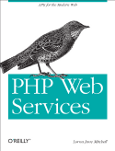Recently the kind folks at Prentice Hall contacted me to ask if I’d like to read a new publication of theirs , “
Making it Big in Software
“. It sounded like something I’d be interested in and the copy duly arrived. My first impressions were of a wordy book, very much aimed at large organisations, or those working in academia. And although I’m 20-something myself, the advice in the first sections of the book is aimed more at students or recent graduates than, I felt , at me.
Moving on into the book I found more that applied to me, including some great advice on communicating in different settings and with different types of people. I was also interested to find some thoughts on debugging as a skill to be used instead of, or before, launching a built-in debugger. This makes sense to me because my first programming languages weren’t the kind that have IDEs or other advanced tools.
The chapter on time management starts with the words “if you only read one chapter in this book, this should probably be the one” – and I must say I agree. I consider myself to be organised but there were some great strategies outlined in that particular chapter. Also running through the book like a thread is a series of interviews with software luminaries, each of whom were asked mostly the same questions, including how they manage their time and work-life balance. So there were some real-life stories in there too – I was encouraged that almost all of the people interviewed said they didn’t think they found balance, because personally I know I haven’t.
The interviews provided a great structure on which to hang a book full of good advice. One chapter advises how to identify and avoid “career killers” – those dead-end projects that will hold up your progression. Later on the focus moves away from the big organisation that the author and interviewees have most experience of, to look at starting software companies and the skills and attitude needed for this. Certainly once I got past the first third of the book I was much more drawn in; maybe because that dealt with an early stage of career that I felt I had already mudddled through?
Overall this is quite a dense book to read over a short period of time, but an excellent one to keep around and dip into or read another chapter every few weeks perhaps. Certainly its one that will be going on my bookshelf for me to look back at and refresh my thoughts on various topics covered for some time to come.






